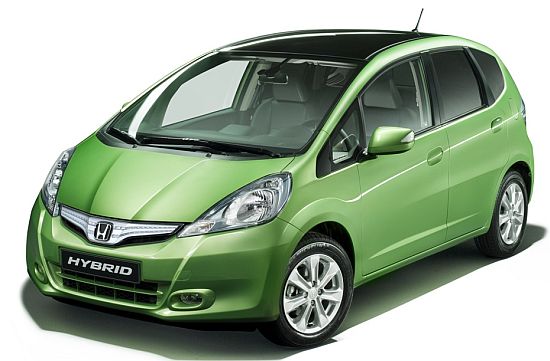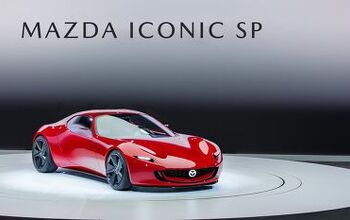Honda Fit Hybrid. Not NA Bound. It's All In the Numbers

Since the recession, I’ve been paying attention to my finances. I’ve re-negotiated my mobile phone plan, changed gas and electricity suppliers and cut my pay-tv package down. I then started to look at driving costs. I re-negotiated my car insurance, but the real saving was in fuel costs. How do I cut the use of an expensive commodity? I did contemplate changing my little 6 year old Toyota Yaris for a hybrid. Whilst I was doing the math, a story was emailed to me.
The Globe And Mail reports that the Fit (A.K.A. Honda Jazz) hybrid will not be coming to the North American market. The only chance that the Fit Hybrid will come is if fuel prices start to go north again. The logic relates to the pricing. In Japan, the Fit hybrid costs $19,686 (when converted from Japanese Yen). A regular petrol Fit (with automatic gearbox) comes in at around $15,700 (according to Honda US’s website). That represents a premium of $3986. A premium which Honda posits that North American buyers will not be willing to pay.
A regular petrol Fit with an Auto gearbox (which is more efficient than the manual version) gives 35mpg highway. Whereas according to Japanese figures the hybrid Fit will give 30 kilometers to a liter of fuel (works out to be about 71mpg) highway. That’s an extra 36mpg. According to a quick Google search, the average American drives 12,000 miles a year. This means in a regular Fit the average American will use 342.85 gallons of petrol a year. Whereas in a hybrid Fit, they’d use 169.01 gallons. A difference of 173.84 gallons. Now using the AAA’s figures, the average cost of a regular fuel per gallon is $2.834. Which means the average hybrid Fit driver would save $492.66 per year in fuel costs. So to make up the $3986 premium over a regular Fit, you’d have to drive the hybrid Fit for just over 8 years. Seems like Honda has a valid point.
But if fuel costs were to rise to $5 per gallon, the payback time gets cut down to just over 4.5 years. But, on the bright side, emissions will be less, which means cleaner air and less oil would need to be imported, which means the trade deficit would go down. Would that make the $3986 premium worth paying? By you?
I did the same calculations for UK petrol prices (I had to make some assumptions as pricing for the Fit Hybrid wasn’t available in GBP and I used the price of a UK Fit). Anyway, after working all this out, the payback on the “hybrid premium” was just over 5 years. This makes sense as to why Honda is selling it in Europe. However, for me, it made more sense to keep my Yaris. I get 50 mpUKg (with careful driving), it’s already paid off and I don’t have to lash out for a new car. Sometimes the best way to save money is to do nothing!

More by Cammy Corrigan
Latest Car Reviews
Read moreLatest Product Reviews
Read moreRecent Comments
- Lou_BC Honda plans on investing 15 billion CAD. It appears that the Ontario government and Federal government will provide tax breaks and infrastructure upgrades to the tune of 5 billion CAD. This will cover all manufacturing including a battery plant. Honda feels they'll save 20% on production costs having it all localized and in house.As @ Analoggrotto pointed out, another brilliant TTAC press release.
- 28-Cars-Later "Its cautious approach, which, along with Toyota’s, was criticized for being too slow, is now proving prescient"A little off topic, but where are these critics today and why aren't they being shamed? Why are their lunkheaded comments being memory holed? 'Who controls the past controls the future. Who controls the present controls the past.' -Orwell, 1984
- Tane94 A CVT is not the kiss of death but Nissan erred in putting CVTs in vehicles that should have had conventional automatics. Glad to see the Murano is FINALLY being redesigned. Nostalgia is great but please drop the Z car -- its ultra-low sales volume does not merit continued production. Redirect the $$$ into small and midsize CUVs/SUVs.
- Analoggrotto Another brilliant press release.
- SCE to AUX We'll see how actual production differs from capacity.


































Comments
Join the conversation
Hybrids are for stupid people, social followers, spiritually lost souls looking for something to believe in, and those with a vested political or economic interest. The only exception is someone who drives taxicab miles all in town.
The Fit is on my list as one of the most revolutionary cars of all time... and it's still a cracker to drive, even in the watered-down second generation. 30 km/l isn't too much to expect out of a Fit hybrid. Manual transmission small-engined models (available in Japan) can already get over 23 km/l (54 mpg) in daily driving... and 30 km/l isn't unheard of in hypermiling. The adjustments to the platform for hybridizing won't be too much. They'll have to ditch the ULT seat folding system and possibly replace the full-sized spare with some fix-a-flat, but the Fit hybrid will still have tons more cargo space than any other hatchback in its class. The front-mounted fuel tank of the Fit makes it a much better platform for hybrid conversion than anything else out there.